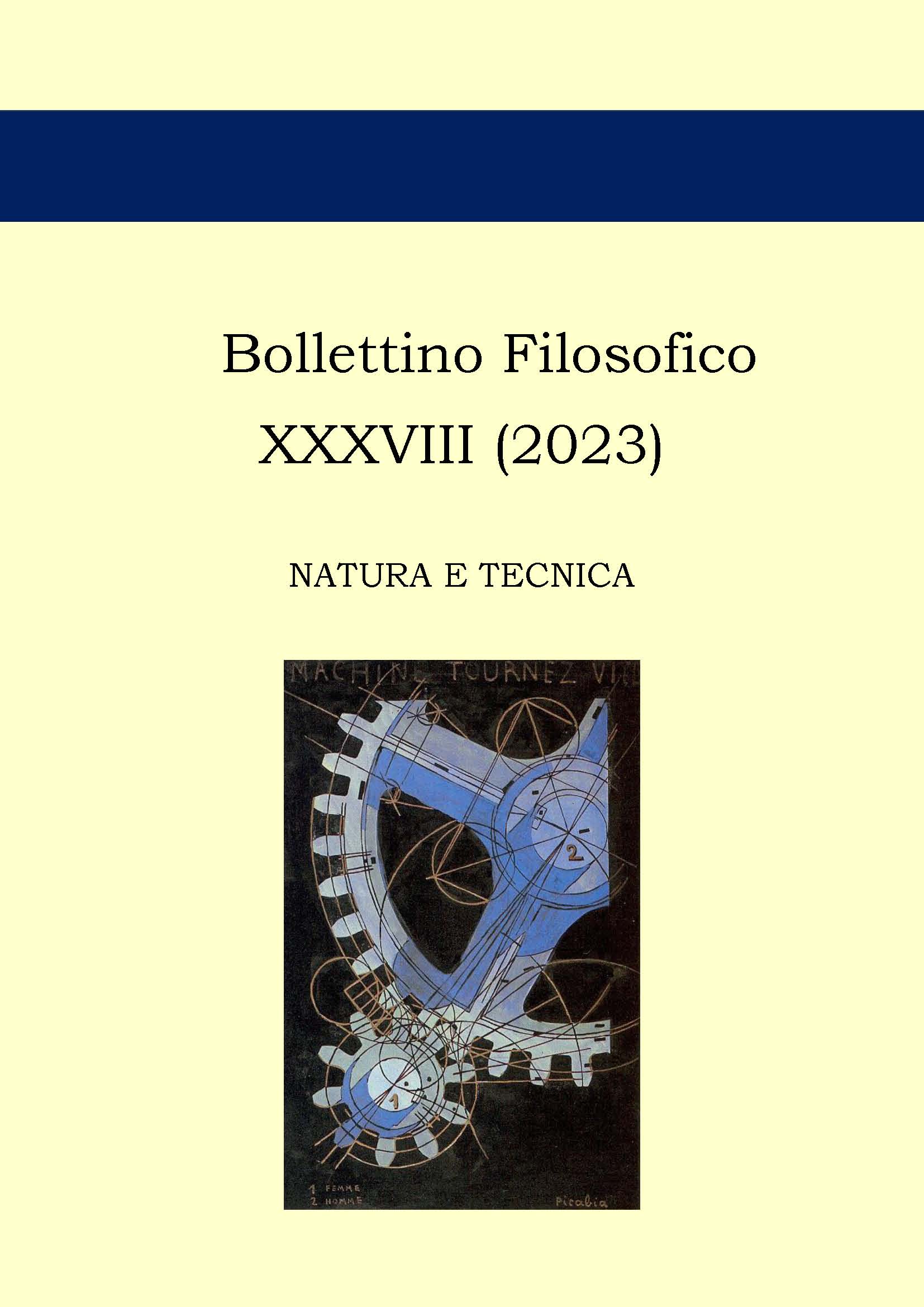A Machine for Producing Gods. From Heidegger to Bergson
DOI:
https://doi.org/10.6093/1593-7178/10379Abstract
In the Protagoras myth, which inspired twentieth-century reflection on technology, the machine is presented as a prosthesis. It must make up for the “lack” that is distinctive of the human being in contrast to the other living species. Technology is thus included in the horizon of the Aristotelian Poiesis, of work, and is assigned to the human sphere alone. The possibility is feared that the machine could transform man into its appendage, annihilating his sovereignty. In Bergsonian philosophy, machines are instead treated as organs of life, in continuity with the causality of nature. That is, technology is included in the horizon of the Aristotelian Praxis and the human agent is seen as an operator of the natural machine. Mechanics and mysticism share the same vital drive that runs through matter. Thus, Bergson provides the basis for a cosmological consideration of technology (cosmotechnics) and for a “general organology” that is radically opposed to Heidegger’s anthropological-existential conception of technology.
Keywords: Cosmotechnics, Homme-Machine, Mysticism, Organology, Power
Downloads
Downloads
Published
How to Cite
Issue
Section
License
The author retains the copyright of his work whilst granting anyone the possibility “to reproduce, distribute, publicly communicate, publicly exhibit, display, perform and recite the work”, provided that the author and the title of the journal are cited correctly. When submitting the text for publication the author is furthermore required to declare that the contents and the structure of the work are original and that it does not by any means compromise the rights of third parties nor the obligations connected to the safeguard of the moral and economic rights of other authors or other right holders, both for texts, images, photographs, tables, as well as for other parts which compose the contribution. The author furthermore declares that he/she is conscious of the sanctions prescribed by the penal code and by the Italian Criminal and Special Laws for false documents and the use false documents, and that therefore Bollettino Filosofico is not liable to responsibilities of any nature, civil, administrative or penal, and that the author agrees to indemnify and hold Bollettino Filosofico harmless from all requests and claims by third parties.

